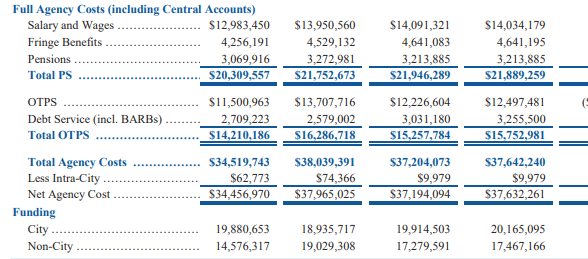
Norm Fruchter (photo: Courtesy of NYU Metro Center)
Norm Fruchter, an education activist whose unique intellectual and organizational abilities led to major change for the New York City school system, died in early January from injuries sustained after being hit by a car in December. His special significance was recognized in a New York Times obituary.
Norm’s contributions weren’t just about school funding, but the development of the small school movement that focused on equity and integration as well.
My early years of service in the New York State Assembly in the ‘80s and ‘90s overlapped with Norm’s service as an elected school board member in District 15 in Brooklyn, from 1983 to 1994. District 15 included the neighborhoods I represented, Park Slope, Windsor Terrace, Sunset Park, Kensington, and Boro Park, and I knew Norm well.
His leadership in organizing the Campaign for Fiscal Equity school funding lawsuit, brought in 1993, was affirmed by New York State Senator Robert Jackson, one of the original plaintiffs in the case, when I spoke with the Senator.
Senator Jackson, who was an elected School Board member from Washington Heights at the time, said that among Norm’s critical insights (along with Heather Lewis, another District 15 School Board member whom Norm married after his first wife when she was also hit by a care in 1997), was to ensure parents and their kids as plaintiffs. When the State moved to dismiss the case, the courts ruled that the City of New York and the community school board did not have standing to sue the State, but parents and their kids did, and the case was allowed to proceed.
One of my clearest memories of Norm involves a confrontation between him and then-Speaker of the Assembly Mel Miller about school funding at a District 15 School Board meeting in the late ‘80s. The powerful Brooklyn Speaker, whose own district also overlapped District 15 along with mine, had simply arrived at a local community meeting. I was in the audience when Norm began ‘speaking truth to power,’ criticizing unfair State funding of the City school system in comments directed at Miller.
Miller defended the State aid formula, which required the City to contribute to school funding in proportion to its own wealth. They argued and it was an unsettling public conversation. I see it now as a prelude to the CFE lawsuit, which argued that the issue was broader than just the distribution of aid, that in fact the amount of money for the schools was simply not adequate to provide a basic education.
It took ten years of resistance from former Governor George Pataki before the lawsuit was victorious in the State’s highest Court, the Court of Appeals. Even then, large sums of money to make good had to await the early budgets of Governor Eliot Spitzer. The premise of the lawsuit was not just that the State had obligations to increase funding, but municipalities too because they were subdivisions of the State.
The additional dollars in the New York City school budget are immense compared to decades ago, even adjusted for inflation (enrollment is similar), overcoming the 2008-2009 recession and the covid pandemic. Below is a snapshot of the New York City School Budget from 1999-2000, taken from the Department of Education’s School-Based Expenditure Report:

The City’s system-wide budget was $11.39 billion in that year and enrollment was 1.1 million students. Per pupil expenses were roughly $10,000 per year.
Fast forward to the 2022-2023 City schools budget (via New York City Office of Management and Budget, Publications 2022, Mayor’s Message, FY 2023 Executive Budget - Message of the Mayor (nyc.gov) :

The New York City education budget is now $37.2 billion; there are still about 1.1 million students.Inflation has doubled since 1999, meaning funding in today’s dollars has risen from $22.6 billion then to $37.2 billion now, a 67% increase per student after the inflation adjustment. (The City of New York remains the largest contributor, funding 54% of the budget, with the State and Federal governments the remainder.)
While there has been much significant change since the CFE lawsuit was brought in 1993, Robert Jackson, Norm Fruchter, Heather Lewis, and the many other activists who brought that lawsuit, with their lawyer Michael Rebell, surely laid a foundation for the system to have the resources it would require for progress in areas like graduation rates.
No tribute to Norm would not be complete without a mention of his contribution to the small schools and public school choice movement. I was also there when a small group of parents and teachers in District 15 founded the Brooklyn New School in 1989 (discussed in this Chalkbeat column on Norm’s passing). Norm described his involvement: “Fruchter recalled getting a pitch from a group of parents dissatisfied with the largely segregated local public school in their neighborhood and pushing to open a new one.”
“I shared the parents’ vision of a small school driven by progressive instruction, project-based learning and a parent choice lottery admission process designed to ensure a diverse and representative student population,” he later wrote, even though he had some misgivings about the idea of starting a new school. That push eventually led to the creation of Brooklyn New School, a progressive public elementary school that remains a popular choice in District 15.
The small schools movement gained momentum as the system’s failures deepened. A 1994 report from then-New York City Schools Chancellor Ramon Cortines acknowledged that the high school on-time graduation rate was 44%, and dropout rates were astonishingly high. Norm spurred grants from the Diamond Foundation to fund public school choice initiatives like innovative new schools, along with other groups like the Annenberg Institute and New Visions.
Elected New York City school boards were (unfortunately, in my view) abolished in 2002, along with the State Legislature granting new Mayor Michael Bloomberg administrative control of the school system. Bloomberg brought in one of Norm Fruchter’s friends, Michele Cahill from New Visions, to help develop new schools. The result was hundreds of new schools throughout the system, many connected to the breakup of the big high schools.
I’m not sure Norm would celebrate the charter schools now educating a large portion of city students, but his visionary contributions to the small schools movement is another one of his unique achievements. The 2022 on-time high school graduation rate for New York City school students was 77%, a far cry from 44% in 1994.
Norm Fruchter was a brilliant person who shined a light on the path forward for the New York City schools. His final blog, written shortly before he was killed, showed he was keeping up with the latest issues on the schools, criticizing Mayor Adams for limiting expansion of 3-K and advocating for his long-held principles and what he believed was best for New York City’s children.
***
Jim Brennan was a member of the New York State Assembly for 32 years, where he chaired four committees. On Twitter @JimBrennanNY.
***
Have an op-ed idea or submission for Gotham Gazette? Email This email address is being protected from spambots. You need JavaScript enabled to view it.




